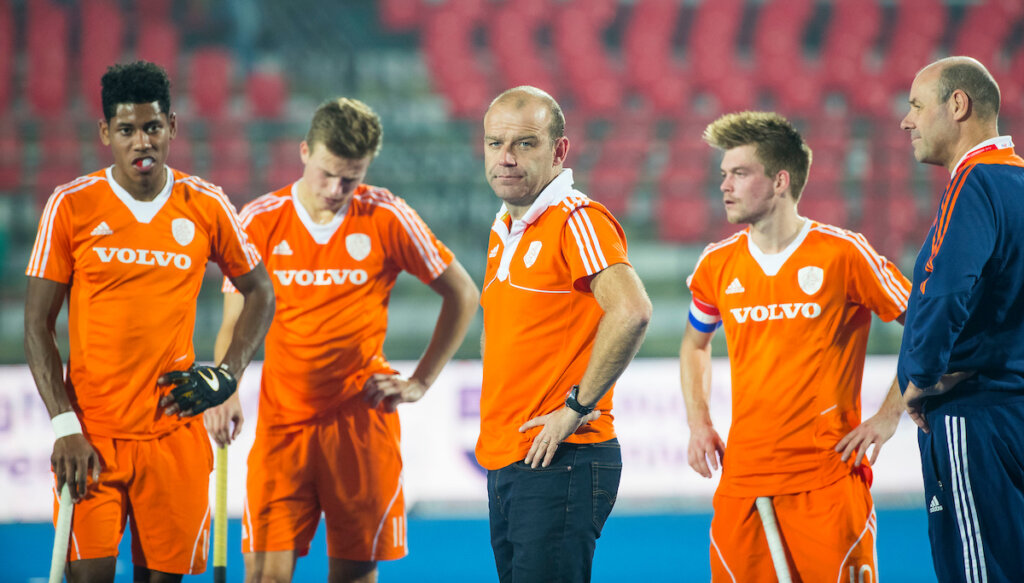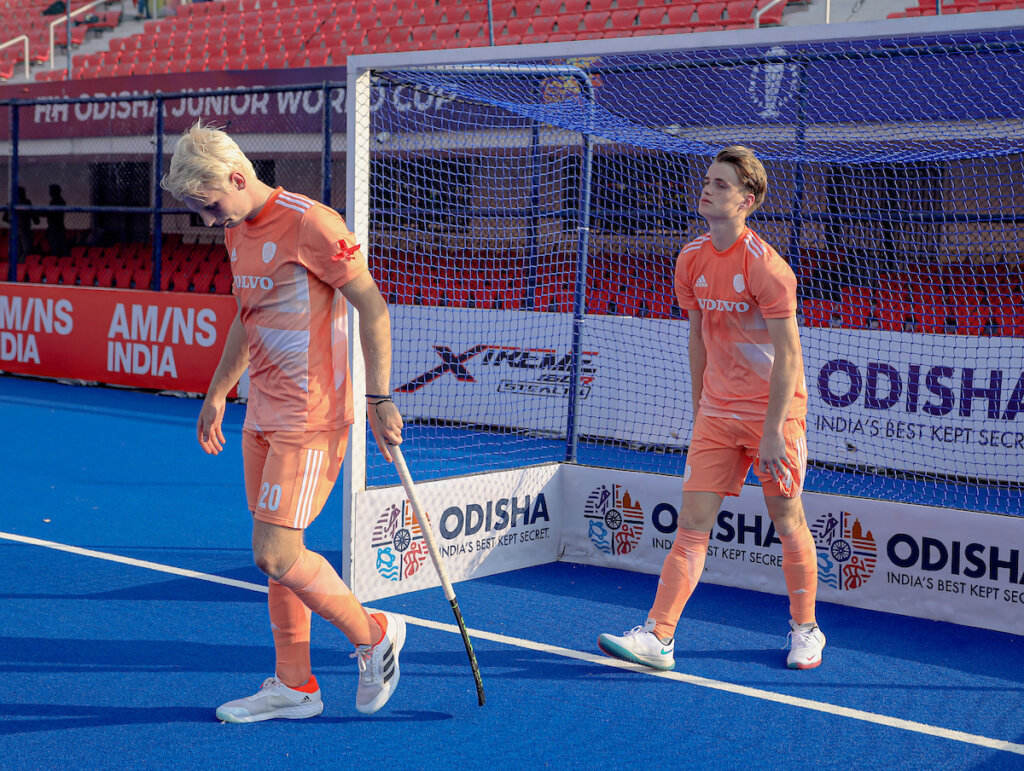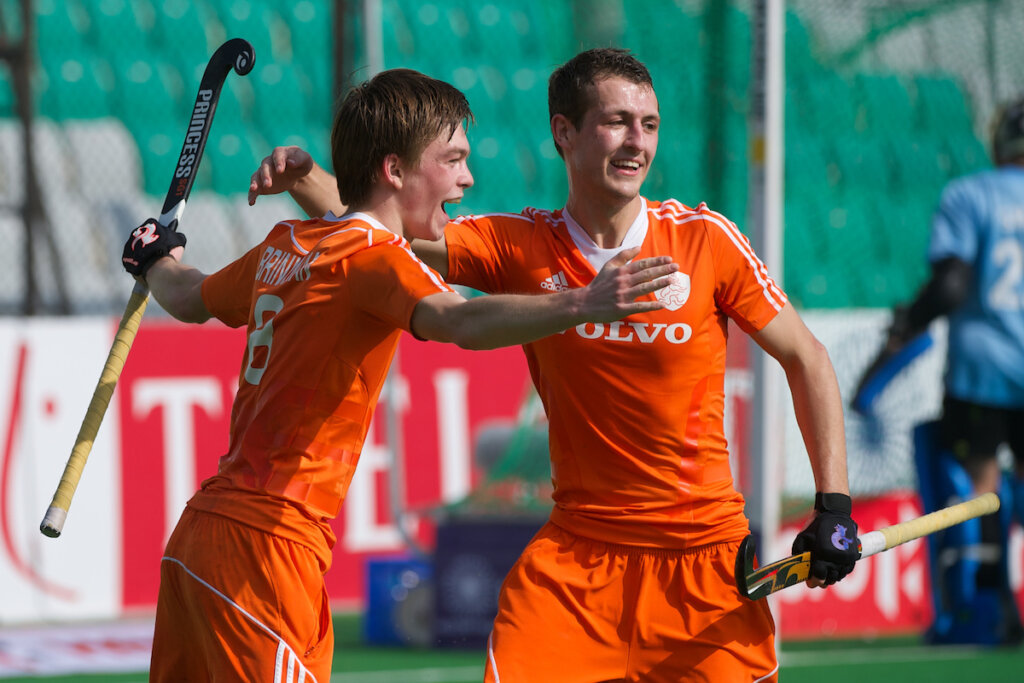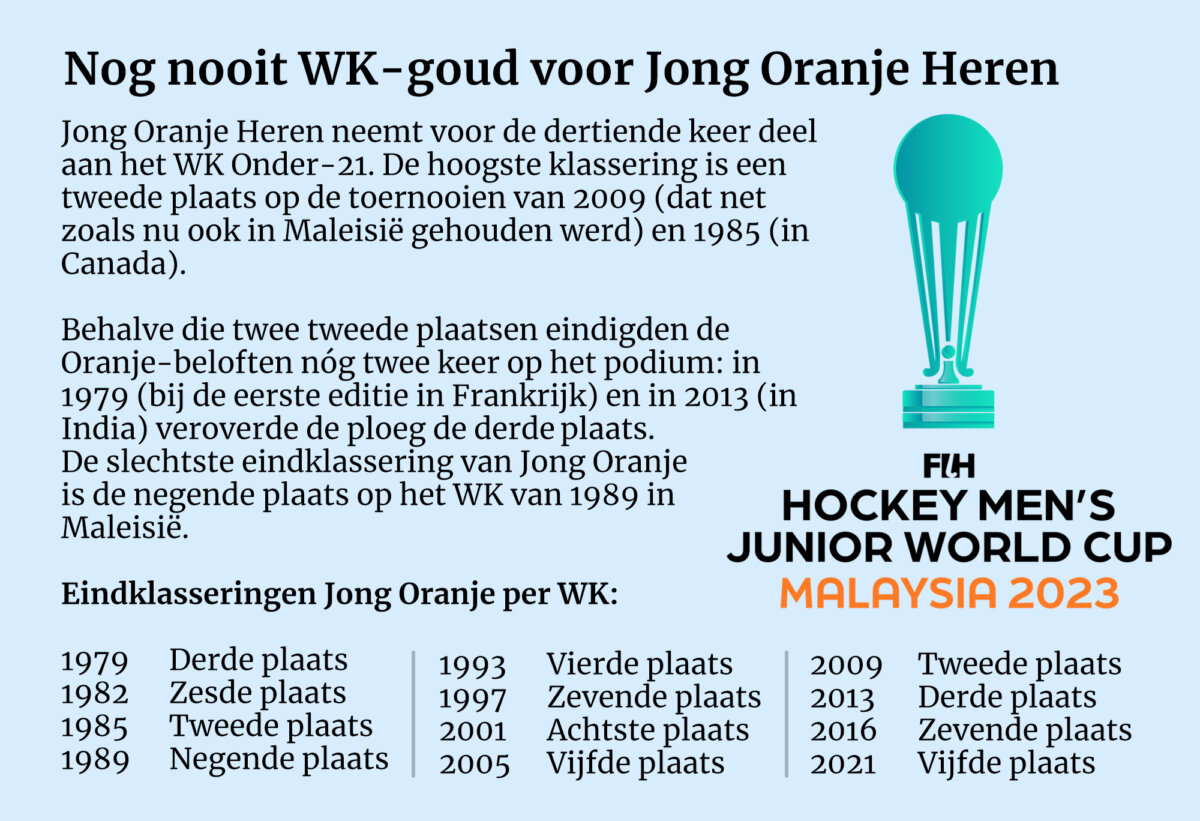We came second twice. Also took bronze twice. But the Dutch men have never won the World Cup under 21 years. With three experts we look for an explanation for the missing cup in the KNHB trophy cabinet.
“When we were done at the World Cup, we were ready to play a World Cup.”
It is an almost Cruyffian sentence that Eric Verboom throws through the telephone. In 2016, De Brabander was national coach at the Dutch Juniors, which finished seventh at the World Cup in India. A disappointing result, especially when you look at the selection. It houses the skeleton of the Dutch national team of today. Jorrit Croon, Thierry Brinkman, Jonas de Geus and Jip Janssen, to name just a few.
‘Lars Balk was also there,’ says Verboom. ‘But he was sick in bed for almost the entire tournament. It really wasn’t due to the quality of the group. I think that at least ten later moved on to the Dutch team. The most difficult thing was to form a unit of eighteen young players from all different clubs. We simply had far too little time for that.’
This brings us back to that first sentence. ‘You have to get to know each other as a group. Have good conversations, be happy together, experience disappointments, have a war with each other. There was not enough time for a real hierarchy to emerge. The last World Cups start almost immediately after the main class weekend. The run-up to that was far too short for our quite talented group. There was a four-nation tournament in Spain, which we would have liked to participate in. But yes, that didn’t fit in with the major league program.’

‘Germans with upper arms as wide as thighs’
This year the Dutch Juniors ended up in the same situation. An exhibition tournament was held in Johor, also in Malaysia, last month. While the youth internationals of national coach Jesse Mahieu were still neatly completing their matches in the Tulp Hoofdklasse, their competitors from Germany – which won the tournament -, India and Australia were already playing for a cup.
“Because of the program in the Premier League, we do not have the luxury of taking more time,” underlines Joost van Geel, performance manager at the KNHB. ‘It is of course a striking fact that the Netherlands has never won this tournament. This is not only due to the limited lead time. A factor, for example, is also physical development and the focus on it. At this age – up to 21 – this is already becoming apparent. As the Netherlands, we are more technically and tactically oriented, although we are still catching up. We will never win physically, but we don’t want to lose it either.’
Australia was absent from the previous World Cup in 2021 due to corona restrictions. But there was another country that physically drew attention to itself, namely losing finalist Germany. “They had a few very big boys with them,” says Michiel van der Struijk, the person ultimately responsible for that tournament. ‘With upper arms that were as wide as my thighs. Truly unbelievable, they had clearly spent longer in the weight room. We did have tall boys with us, like Justen Blok. But it was a lot more delicate. You should not canonize that physical part. As far as I know, none of those great Germans has really broken through to the national team.’

Street fighter mentality
Germany is the record champion at the Under-21 World Cup. No fewer than six of the thirteen titles went to our eastern neighbors. Van der Struijk: ‘Generally speaking, German teams are very stable and play quite soberly. They rely on excellent basic skills. Their agreements are often clearer than with Dutch teams. There are more high peaks and deeper valleys in our game. Then you can play a very good tournament – which we did – but be eliminated in a very unfortunate way.’
That happened the previous Dutch Juniors in the quarter-finals against the later winner Argentina. An edition earlier, India had its name engraved on the cup. Van Geel: ‘In some countries, surviving and growing up in society is a different theme than ours. These backgrounds bring with them different cultural values and also different educational principles. You also notice this in the field, winning takes on a different meaning.’
‘I don’t want to tar everyone with the same brush. But growing up in those countries is often a bit different than in South Amsterdam, with a scooter in front of the door,’ laughs Van der Struijk. ‘That street fighter mentality really came to the fore at our World Cup, with the Argentinians. Upheavals were no exception in their matches. They really came to blows with their opponents in the semi-final against France. Fighting – literally and figuratively – is more important to them. Just like the fact that it doesn’t always have to be beautiful. We always find that a bit difficult in the Netherlands – rightly or not.’

The chances in the competition
‘We often have wonderful talents,’ says Verboom. ‘But due to the presence of many foreign players in the competition, not everyone comes to fruition. Because the appeal of the big league is so great, clubs are more likely to choose – let’s say – the last man in Spain, rather than a young guy. That is why it is extra nice that someone like Timo Boers is in that position at Den Bosch. He gains the confidence. I can’t provide any figures, but I think the competition is less fierce in other top countries. And young players are therefore more likely to play minutes at the highest level. For example, it is a great shame that our goalkeepers are not in the goal every week in the big league.’
The three experts agree that it is time for the Netherlands to be on the top step of the podium at the World Cup. ‘I believe in it this time too. There is a fantastic group that can score well,” says Verboom. ‘But we also said that in recent tournaments. I especially hope that the group knows each other well enough to get through difficult moments together. And even if they are not successful here, things can still work out later. Just look at the boys from our youth World Cup.’
by Hockey.nl








